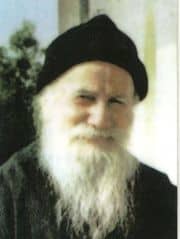As I’ve said, Queen Abigail the Wise followed the weeks in Lent by design. I wanted to see if I could communicate a little of what I have learned over the years about the patterns and the Church’s “rhythm” that unfolds over the weeks before Pascha. But I always knew that would present some difficulties when I got to the second Sunday. It’s not for nothing that Abigail’s mother consoles her for not being able to quite understand all that the priest said about St. Gregory Palamas. That has been difficult for me to pick up as well — Uncreated Light? Energies vs. essence of God? Hesychasm? — and so how could I try to transmit all that to young readers?
(By the way, here’s a 10-minute video from the estimable Sister Vassa that does a fantastic job of summing it all up.)
‘Pray with your heart’
But if I skirted around the heavier theological issues, I felt like I could at least convey the idea of the kind of ongoing prayer that the Orthodox Church treasures. Most often, that is taught, even to little children, in the form of the Jesus Prayer. So when Abigail tells her mother that she is worried about her friend Maggie, her mother tells her to remember what she heard on Sunday, to pray with her heart. What would a little girl make of that advice? Here’s the way I imagined Abigail might go about it:
We had a big maple tree outside our house in Missouri, and I thought Abigail would like one, too. In spring, the branches aren’t that much to look at. But somehow, you always feel better with a big tree around. Image by artsporeslife.wordpress.com
She looked out into the night and saw the vague outline of the giant maple tree that always seemed like it was guarding her bedroom. She said the simple prayer she knew by heart called the Jesus Prayer. She just looked out and let herself say it until the words seemed to be saying themselves, “Lord Jesus Christ, Son of God, have mercy on me, a sinner.”
The night got so quiet. Eventually, Abigail stopped saying the words, because somehow, they were already there, already in the room with her. She didn’t feel sorry for Maggie anymore, and she didn’t feel alone.
‘My joy becomes ever stronger with the words’
It takes a lot of nerve, really, to abbreviate the volumes of material written about the Jesus Prayer. I have read some of the more “user-friendly” texts, and they still get into theology and methods that can overwhelm me, including the best way to sit and to breathe, and how to “hold” your mind in your heart. I’m as much of a child to those disciplines as Abigail is, and I just had to simplify her experience. But I bolstered my courage by remembering something that was related by one of our most recent saints, St. Porphyrios the Athonite. Saint Porphyrios first joined the monks on Mt. Athos when he was only 13, and he certainly knew a great deal about effective prayer. But he relates an encounter with a critical monk as a way of establishing what he believed really mattered:

St. Porphyrios spoke at length about divine love. And I can’t help noticing that in most of the pictures of him, that love is written on his face.
A monk who practices the Jesus Prayer came here from the Holy Mountain and he asked me:
‘How do you say the Jesus Prayer? Do you sit on a low stool? Do you lower your head and concentrate?’
‘No,’ I replied. ‘I say, “Lord Jesus Christ …” clearly in my mind giving attention to the words. … That’s how I do it in my mind and pay attention only to the words.’
‘That’s not right at all, Elder,’ he said. ‘The way you describe it is quite erroneous, not to say deluded. The mind needs to be in the heart … You are deluded …”
He got up to leave.
‘Elder!’ I said to him. ‘Listen and I’ll tell you something. When I am repeating the prayer in my mind, sometimes my joy becomes more and more intense. And when my joy becomes ever stronger with the words, “Lord Jesus Christ …” I feel my mind leaping within me along with my heart. That is, I feel my mind plummeting into my heart and there I experience all this joy as I say the prayer. I begin with the mind and then my mind moves in its own when joy comes.’
‘So that’s how you pray! That indeed is the way!’ he said to me. ‘Forgive me for saying “”delusion”.’
(St. Porphyrios, Wounded by Love)
I certainly have a great deal to learn on this subject. Every year, the Church reminds me that it’s time to pick up a little bit more, to reflect on the teachings of St. Gregory Palamas, and the Jesus Prayer and prayer and fasting. But every year, also, the Church gives me reason to identify more with the kind of joy that St. Porphyrios experienced. If we can all just grow in that, and transmit that to another generation, all the rest will surely take care of itself.
